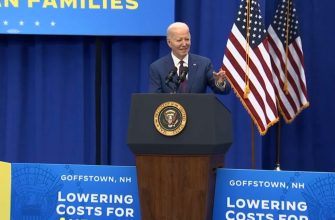A Sioux City man whose court-appointed attorney complained of janitor-level wages is not entitled to a mistrial, the Iowa Court of Appeals has ruled.
The case involves Jayme Powell, 41, who appealed a district court’s refusal to declare a mistrial. His court-appointed attorney claimed that he was denied the pay and resources necessary to defend Powell on charges of attempted murder.
The case dates back to December 2020, when Powell and his roommate were involved in a dispute that escalated into a shooting. Court records indicate that while driving on the interstate, Powell fired at least two rounds into a nearby truck that was being driven by his roommate’s girlfriend.
One shot shattered the rear driver’s side window, where the roommate’s 2-year-old daughter was sitting in her car seat, and the other went into the passenger side door. After the roommate, who was following behind the truck on his motorcycle, raced forward to help, Powell ran into him with his truck, according to court records.
Powell was later charged with two counts of attempted murder, two counts of intimidation with a dangerous weapon with intent as a habitual offender, two counts of theft in the second degree, and possession of a firearm by a felon as a habitual offender.
After Powell’s first two court-appointed attorneys withdrew from the case, attorney Allan M. Richards of Tama was appointed to represent Powell in court.
‘Defendants aren’t getting a fair shake’
On the first day of trial, after the jury was selected, Richards told the court, “I’m a public defender, and currently under Iowa Code the pay is $68 an hour, which is fundamentally unfair to defendants to adequately maintain an office and sufficiently prepare to compete against better-funded prosecution … That is, a due-process and a constitutional violation — and so I point that out to the court, that defendants aren’t getting a fair shake, essentially.”
Later, Richards questioned “the whole system of the public defense,” telling the judge in the case that “the state is getting paid. Their witnesses are all being paid. They get their money … The state is paid weekly, the prosecution. And I’m sure the court is as well. The only one that doesn’t get paid weekly or has to worry about getting paid is me. And I have to stand here and represent this man, and I will argue that that is not only unfair and it raises to the level of a mistrial at this point … I get paid $68 an hour. I have to maintain a secretary (at an) $18 living wage. That gives me $50.
“I have to maintain my office, pay for my computers, all of my equipment, and do everything else — which brings me less than the courthouse janitor,” Richards told the court. “So, you have somebody being paid at the courthouse-janitor level to defend him on something that’s going to take his freedom away for the rest of his life. And I get thrown hardballs and hardballs. And it’s just me … I’m asking for a mistrial, but I’m also asking the court to order the state to pay me so that at least I’m not sitting here and having to worry about my bills and living my life and at the same time defending this guy because I have to invest my time — and food and motels and getting here — and then still worry about getting paid.”
In response, District Court Judge Roger L. Sailer denied the motion for a mistrial, but told Richards, “I don’t want you to feel that I’m being dismissive of the things that you’ve said. I am listening to you, and I understand what you are saying, and I’m not without sympathy to what you are saying.”
On the last day of trial, Richards made a final appeal to the court for a mistrial. “My client is indicating to me stuff that I should have done and could have done which makes me ineffective because I didn’t have the time,” he told the court. “Over the years, you just get into this process of ‘give reasonable representation but don’t, you know, you just can’t do too much, otherwise we are not going to pay you.’ So, that makes me ineffective to help this man. So, we are moving for a mistrial.”
Noting that he had considered the same arguments previously, the judge denied the motion. A jury later found Powell guilty of two counts of attempted murder; two counts of intimidation with a dangerous weapon with intent; possession of a firearm by a felon; and operating a motor vehicle without the owner’s consent. He was sentenced to 54 years in prison.
Powell appealed, arguing Richards’ statements about his compensation should have alerted the judge to the lawyer’s potential conflict of interest in the matter. The appeals court rejected that, saying Powell failed to show the alleged conflict adversely affected Richards’ performance.
The court noted that at one point, Richards had informed Judge Sailer that the compensation issue was “not impacting me in terms of being here and doing what I’m doing.”
As for Powell’s claim that a mistrial should have been declared due to a claim of ineffective legal counsel, the appeals court noted that such a claim can be raised only in postconviction-relief proceedings and on direct appeal.
In November 2020, the Attorney Disciplinary Board of Iowa publicly reprimanded Richards for providing inaccurate information on a Judicial Branch application when he indicated he had never been a party in a legal proceeding. The board said it confirmed Richards had been named as a defendant in eight Tama County lawsuits. Court records indicate those cases are debt-collection and mortgage cases.
Chief justice cites contract attorney shortage
In her Condition of the Judiciary speech to state legislators in January, Iowa Supreme Court Chief Justice Susan Christensen warned that a “statewide contract attorney shortage is threatening to bring criminal proceedings to a screeching halt” in Iowa.
She noted that there were fewer than 600 contracted public-defense attorneys in Iowa — a significant decrease from 2011 when there were more than 1,000. She called for an increase in the attorneys’ hourly rates, which ranged from $68 to $78 for criminal cases, depending on the severity of the charges.
Lawmakers subsequently approved an appropriation of $2.6 million to raise the pay for contracted public-defense attorneys and provide reimbursement for travel time and mileage. Senate File 562 is awaiting the governor’s signature.








